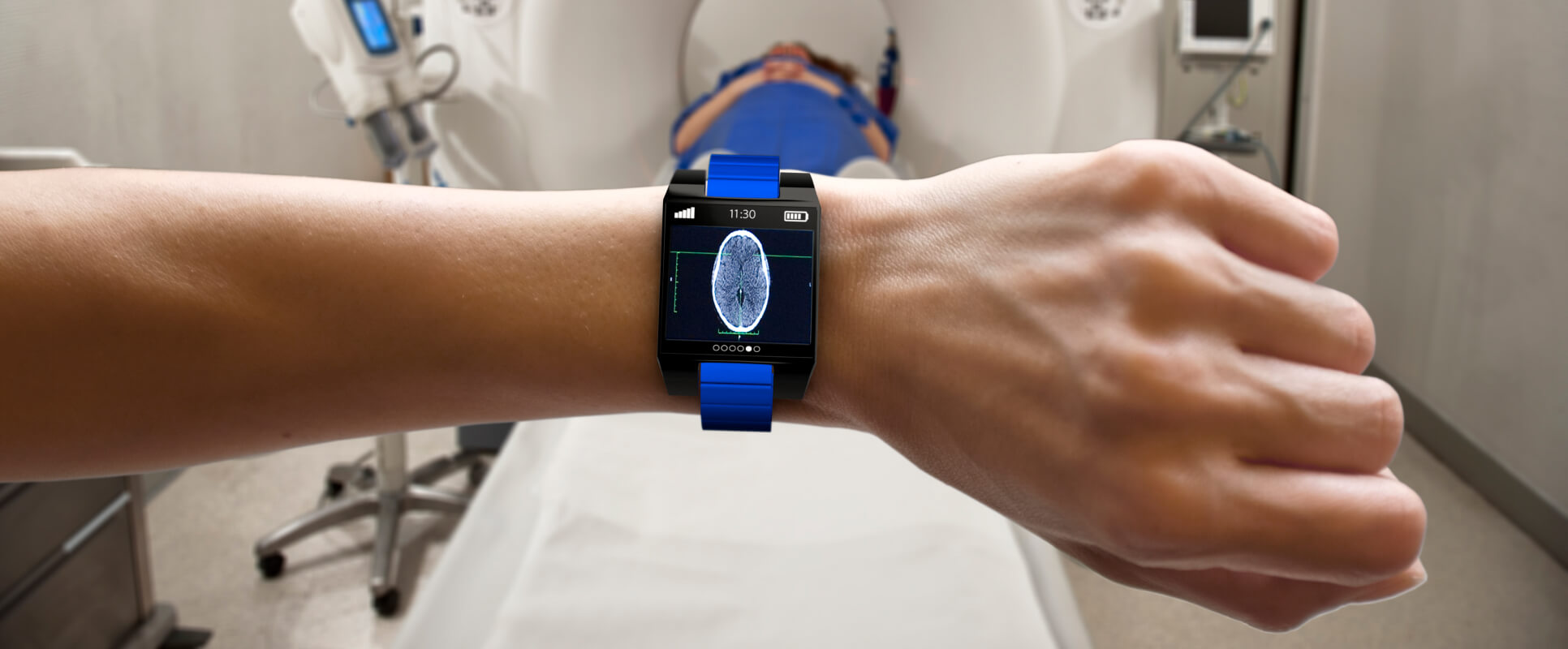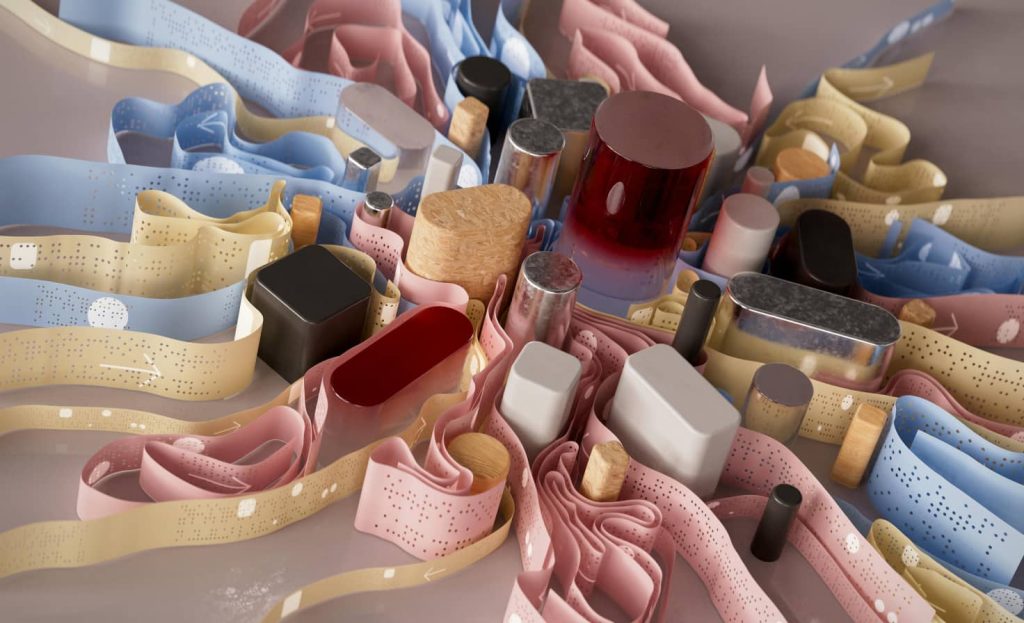
Electronic healthcare records are common in today's medical industries. 88% of office-based physicians rely on digital records, and 98% of those providers collect additional data, like behavioural determinants of health (BDOH) information, alongside charts and diagnosis and treatment codes.
Today's healthcare tech goes beyond electronic medical records (ERM) software. Hospitals are using AI for more accurate diagnoses of X-rays and other medical imagery, and the world-famous Mayo Clinic has developed telemedicine software solutions to help providers improve monitoring and make informed diagnostic and treatment decisions.
Many digital tools are available in the healthcare realm. However, the needs of medical facilities are highly specialised. Custom healthcare software development can help customise existing IT tools, automate record-keeping and other processes, and meet the exact needs of specialists.
Here is a closer look at custom software solutions for healthcare.

-
What Software Do Healthcare Organisations Use?
Healthcare organisations rely on different software during daily operations. Each requires a unique approach to development.
-
Electronic medical records are almost universal in today's healthcare industry. Off-the-shelf records systems allow providers to record patient data for themselves and other providers. Custom healthcare software development can improve upon these functions by automating record-keeping tasks, improving security and access, and allowing the collection of additional data that enhances outcomes and increases care quality.
-
Health information exchange software allows providers to access and share patient data with others. Custom solutions can improve security and ensure compliance with patient privacy regulations. Most importantly, they can ensure efficiency so that providers can search large amounts of data and easily find what they need.
-
Telemedicine software, which includes video conferencing and communication tools, facilitates the growing trend of remote medicine. These platforms often require customisation. For instance, a dentist would require a different setup than a general practitioner. Also, telemedicine platforms need to work on a wide range of computers and devices to be accessible to all patients.
-
Remote monitoring software records data from wearable devices and may alert providers when readers indicate potential dangers. Physicians not only need customised software solutions, but they may require the ability to change the settings for each patient depending on their needs.
-
Diagnostic software uses AI to detect small anomalies in medical images, scans, or data, improving accuracy and finding issues invisible to the naked eye. Each type of imaging or data requires customised AI solutions designed to learn and interpret different data sets or images.
-
Medical training software allows professionals and students to learn remotely. In addition to theory and concepts, educational software can use virtual and augmented reality to provide practice in realistic situations before treating human patients.
-
Augmented reality software can assist surgeons during medical operations. The software can identify surgical steps, project guides on the patient, and use cameras to make procedures more efficient and less invasive. Customisation is essential because each physician has preferences and methods for completing procedures and projections and measurements must be exact to achieve expected outcomes.
Healthcare software development can also involve administrative tasks, such as medical billing and appointment setting. Such tools are available off the shelf but may require customisation in some instances, such as if you want to integrate them into a larger clinic management system.
-

What Are the Advantages of Customised Healthcare Software Development?
While off-the-shelf solutions may work in some instances, customised healthcare software brings important advantages.
Ensure Data Security
Healthcare providers in the UK must abide by the Data Protection Act, which covers patient records and healthcare information. Added verification, permissions, and security measures can ensure your organisation complies with the rules and avoids potentially damaging data breaches. These problems could not only bring legal issues, but they could also damage your facility's reputation. Software developers can help your facility balance access to information with cyber security.
Increase Efficiency
Tailor-made software can also increase efficiency. For example, automated data collection and categorisation can save medical staff from having to manually log information and select the proper tags and categories. Also, staff members can have patient data at their fingertips with a few keystrokes instead of having to search for it.
Improve Outcomes
Customised software can improve medical outcomes by giving providers more support and information. For example, with well-organised patient data, physicians can make the most informed decisions about treatments. Your facility can even use software to analyse outcomes across your entire patient base. These studies, which are possible because of well-designed data collection and organisation, can offer insights into the effectiveness of treatments and medical services and define areas for improvement.
Other customised tools, such as augmented reality software for supporting surgeries, can limit mistakes and help physicians to be more accurate with their processes.
When your organisation uses software, it creates a data trail. You will have the information to assess outcomes and analyse your processes. With these customised insights, you can engage in continuous improvements and provide your patients with the best possible treatments based on the latest insights.
Provide Patients with Better Access
Healthcare software development plays a pivotal role in patient access. Customised platforms make telemedicine visits possible, so people with limited time or mobility can access medical services. Video checkups can also assist with triage, helping patients decide if they need additional medical care for an illness, injury, or condition.
Meanwhile, medical messaging applications provide patients with access to providers for answers to questions or concerns. Patient-facing software can also automate the appointment process and send reminders to limit missed appointments.
Finally, wearable monitors can provide ongoing assessments of a patient's condition without requiring them to visit a facility for tests.
Why Work with a Healthcare Software Development Service?
A quality healthcare software developer can develop customised solutions that meet your specific needs. Healthcare is a highly specialised industry, so tailor-made IT tools are necessary to ensure proper care and positive outcomes.
Software developers can also handle maintenance, updates, and adjustments to your software. This aspect of customised software is important because it gives you control over your digital tools and saves you from having to wait for updates and improvements from off-the-shelf products.
Related Insights







The breadth of knowledge and understanding that ELEKS has within its walls allows us to leverage that expertise to make superior deliverables for our customers. When you work with ELEKS, you are working with the top 1% of the aptitude and engineering excellence of the whole country.

Right from the start, we really liked ELEKS’ commitment and engagement. They came to us with their best people to try to understand our context, our business idea, and developed the first prototype with us. They were very professional and very customer oriented. I think, without ELEKS it probably would not have been possible to have such a successful product in such a short period of time.

ELEKS has been involved in the development of a number of our consumer-facing websites and mobile applications that allow our customers to easily track their shipments, get the information they need as well as stay in touch with us. We’ve appreciated the level of ELEKS’ expertise, responsiveness and attention to details.
